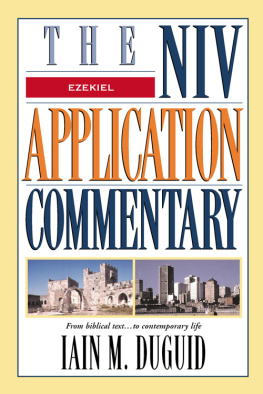
Public Health, Disease and Development in Africa
The closure of the Millennium Development Goals (MDGs) in 2015 prompted the need for a book of this kind. An interdisciplinary group of global health scholars contribute to the understanding of the emerging and fast-growing problem of the dual burden of communicable and non-communicable diseases (NCDs) in Africa.
This book is timely, as the international community has moved from the MDGs to adopt the Sustainable Development Goals (SDGs) as the blueprint for a new human development agenda. Contributions and case studies are situated in the revised Epidemiologic and Nutrition Transition Model to capture the current situation, referencing communicable and NCDs on the African continent. The case studies encapsulated aim to help minimize negative health outcomes and improve population health, well-being, and equity in the future.
This book will be significant in policy circles to assist international organizations, governments, and United Nations agencies. It aims to chart the future for health in Africa in light of recently adopted SDGs. This book is also a useful complementary reader for global public health related courses.
Ezekiel Kalipeni is a population and health geographer with research interests in demographic, health, environmental, and resource issues in sub-Saharan Africa. He has carried out extensive research on the population dynamics of Malawi, and Africa in general, including concentrating on the issues of fertility, mortality, migration, and health care. He is currently researching the drivers and consequences of the HIV/AIDS pandemic in Africa.
Juliet Iwelunmor is an associate professor at St. Louis University, Missouri. She explores social, cultural, behavioural, and policy factors that influence the health of individuals, families, and communities across the lifespan. She is particularly interested in global health issues, having previously worked as the Culture Sector coordinator for the UNESCO Intersectoral Platform on HIV and AIDS.
Diana S. Grigsby-Toussaint is an associate professor in the College of Applied Health Sciences at the University of Illinois at UrbanaChampaign. As a social epidemiologist, she attempts to elucidate how and why socio-environmental factors influence health in local, national, and international contexts. Her research explores the three pillars of health (diet, physical activity, and sleep) on non-communicable disease risk among vulnerable populations by utilizing an interdisciplinary approach spanning epidemiology, geography, and nutrition. Dr. Grigsby-Toussaints research has been supported by the Robert Wood Johnson Foundation, USDA, and NSF, and her work has been featured in the Chicago Tribune and The Huffington Post.
Imelda K. Moise is an applied health geographer and monitoring & evaluation (M&E) specialist, expert in multi-method approaches, community-based participatory research, culturally responsive research, and Geographic Information System (GIS) analysis. Her research focuses on the interface of the social determinants of health, health disparities, and inequities particularly among adolescents and maternal and child health populations, infectious diseases (HIV), and linking research to practice or policy. She also supported USAID-funded health programs in low- and middle-income countries (LMIC) and spent five years in Illinois coordinating federally funded research projects and program evaluation for state agency initiatives and ongoing programs, and six years as a Peace Corps technical trainer in Zambia.
Geographies of Health
Series editors
Allison Williams, Associate Professor, School of Geography and Earth Sciences, McMaster University, Canada
Susan J. Elliott, Professor, Department of Geography and Environmental Management and School of Public Health and Health Systems, University of Waterloo, Canada
There is growing interest in the geographies of health and a continued interest in what has more traditionally been labeled medical geography. The traditional focus of medical geography on areas such as disease ecology, health service provision and disease mapping (all of which continue to reflect a mainly quantitative approach to inquiry) has evolved to a focus on a broader, theoretically informed epistemology of health geographies in an expanded international reach. As a result, we now find this subdiscipline characterized by a strongly theoretically informed research agenda, embracing a range of methods (quantitative; qualitative and the integration of the two) of inquiry concerned with questions of: risk; representation and meaning; inequality and power; culture and difference, among others. Health mapping and modeling has simultaneously been strengthened by the technical advances made in multilevel modeling, advanced spatial analytic methods and GIS, while further engaging in questions related to health inequalities, population health and environmental degradation.
This series publishes superior quality research monographs and edited collections representing contemporary applications in the field; this encompasses original research as well as advances in methods, techniques, and theories. The Geographies of Health series will capture the interest of a broad body of scholars, within the social sciences, the health sciences and beyond.
Childrens Health and Wellbeing in Urban Environments
Edited by Christina R. Ergler, Robin Kearns and Karen Witten
Non-Representational Theory & Health
The Health in Life in Space-Time Revealing
Gavin J. Andrews
Geographies of Plague Pandemics
The Spatial-Temporal Behavior of Plague to the Modern Day
Mark R. Welford
Public Health, Disease and Development in Africa
Edited by Ezekiel Kalipeni, Juliet Iwelunmor, Diana S. Grigsby-Toussaint, and Imelda K. Moise
For a full list of titles in this series, please
visit https://www.routledge.com/Geographies-of-Health-Series/book-series/GHS
Public Health, Disease and Development in Africa
Edited by Ezekiel Kalipeni,
Juliet Iwelunmor,
Diana S. Grigsby-Toussaint
and Imelda K. Moise
First published 2018
by Routledge
2 Park Square, Milton Park, Abingdon, Oxon OX14 4RN
and by Routledge
711 Third Avenue, New York, NY 10017
Routledge is an imprint of the Taylor & Francis Group, an informa business
2018 selection and editorial matter, Ezekiel Kalipeni, Juliet Iwelunmor, Diana S. Grigsby-Toussaint and Imelda K. Moise; individual chapters, the contributors.
The right of Ezekiel Kalipeni, Juliet Iwelunmor, Diana S. Grigsby-Toussaint and Imelda K. Moise to be identified as the authors of the editorial material, and of the authors for their individual chapters, has been asserted in accordance with sections 77 and 78 of the Copyright, Designs and Patents Act 1988.
All rights reserved. No part of this book may be reprinted or reproduced or utilised in any form or by any electronic, mechanical, or other means, now known or hereafter invented, including photocopying and recording, or in any information storage or retrieval system, without permission in writing from the publishers.
Trademark notice : Product or corporate names may be trademarks or registered trademarks, and are used only for identification and explanation without intent to infringe.










